Staying Fit

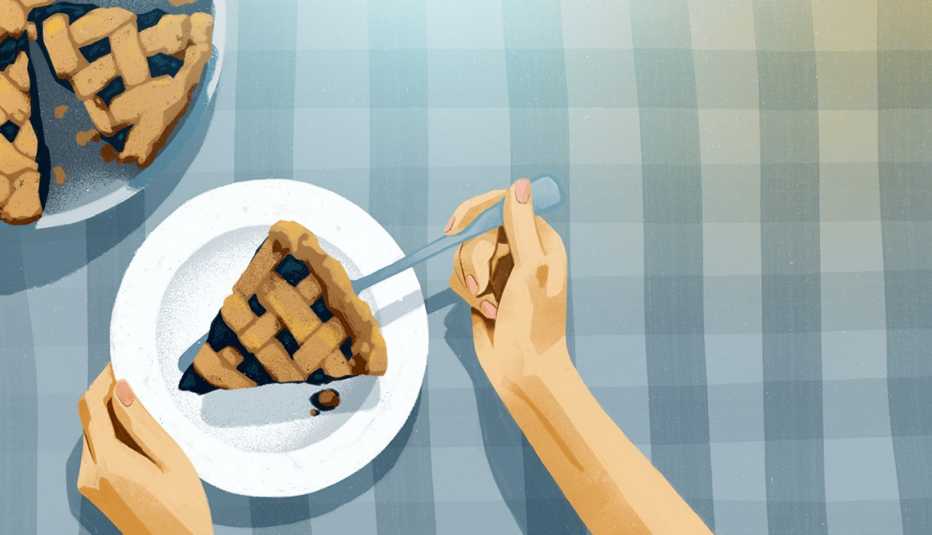
3
“When did you first notice the blackbirds?” the reporter asked.
Bow Barthelemy kicked out long, thin legs. “They’ve been here as long as I have.”
“How long have you worked for the café?”
“Twenty-five years, but the birds have been here longer. Nearly a century, I’ve heard.”
The reporter rolled his eyes and scribbled a note. “Are there always twenty-four birds like in that old nursery rhyme? ‘Four and twenty blackbirds, Baked in a pie—’”
“‘When the pie was opened, The birds began to sing.’” Bow finished the quote. “I know it. Zee once said those birds were probably relatives.”
“She was obviously joking. Right?”
“Zee never joked about the blackbirds.”
Unsure what to say to that, the reporter tapped his pen, then gestured wide. “You don’t find all this strange?”
“Not at all, but what’s strange to me could look mighty different to you.” He stood up, pushed the chair in. “I need to be gettin’ back to work. You want a refill on that blackberry tea?”


AARP Membership— $12 for your first year when you sign up for Automatic Renewal
Get instant access to members-only products and hundreds of discounts, a free second membership, and a subscription to AARP the Magazine.
“Yes, please. Best damn tea I’ve ever had.”
Anna Kate
“I heard tell you’re heading off to medical school soon, young lady,” Mr. Lazenby said. His bottom lip pushed outward and his jaw set as if bracing for a fight.
Skirting his chair, I picked up empty plates and gathered discarded silverware from a nearby table. I wasn’t surprised by his nosiness, as it seemed to be a community-wide affliction, almost as prevalent as the lack of respect for personal space. People had been giving me hugs all morning, my stiffness not the least bit of a deterrent. Did no one have boundaries around here? “That’s right. Classes start in August.”
It had taken me seven long years to complete my premed undergrad. Between switching schools twice, taking time off after my mom’s death, and running out of tuition money … it was a miracle I’d graduated at all. Truthfully, I’d have quit altogether, except for a promise I’d made to my mother a long time ago.
“Hmmph,” Mr. Lazenby said, staring long and hard at me.
It looked like he had dressed for a special occasion this morning, wearing pressed trousers, a crisp white button-down, and a red-and-white checkered bow tie, but I’d come to recognize it was his normal, everyday attire.
He’d been here since the doors opened at eight and didn’t look like he planned to leave anytime soon, even though it was now well after ten. Sitting prim and proper, with his back ramrod straight and his napkin on his lap, he glared at his fork.
“Something wrong?” I asked.
“This pie doesn’t taste right.”
“Otis Lazenby,” Jena Barthelemy called out from the kitchen, “I know you’re not insulting my cooking. That’s Zee’s recipe for apple pie, and I’ll have you know it’s a ribbon winner.”
Jena apparently had bionic hearing, because I wasn’t sure how she’d heard him over the hum in the room.
“It might be Zee’s recipe,” he said, “but this pie don’t taste like the pies Miss Zee made.”
“We can’t be changing the fact that Zee’s gone to glory, can we?” Jena walked over to us. “God bless her soul. Times are changing, and we need to change right along with them, don’t we?”
“But I’ll still dream tonight, won’t I?” he asked, panic threading through his high voice.
“I don’t know. Time will tell, won’t it?” Jena said.
A wave of anxiety washed over me.
While on earth, it’s the job of us guardians to tend to the trees, nurture them, and gather their love to bake into pies to serve those who mourn, those left behind. You see, the bonds of love are only strengthened when someone leaves this earth, not diminished. Some have trouble understanding that, so it’s the pie that determines who’s in need of a message, a reminding, if you will; it’s the love in the pie that connects the two worlds; and it’s a tree keeper who delivers the message.
Yesterday, Jena had taken on the task of making the blackbird pies, and I should have known they wouldn’t be quite right. A guardian was supposed to bake the pies. Now that Zee was gone, making the pies fell on me as the only surviving Callow. Unfortunately, I didn’t think Mr. Lazenby would get the message he longed for, but I was hoping by some miracle that he would.
“Hmmph.” He pouted at the fork before shoving it into his mouth.
“Now tell all, Anna Kate. Did you always want to be a doctor?” Pebbles Lutz asked.
Pebbles, her white hair piled high, sat across from Mr. Lazenby at the ten-seat communal table that took up most of the dining room. This morning, I’d seen her cast more than one longing glance his way, but he seemed oblivious to her attention and affection.
“For as long as I remember,” I said, dodging the heart of the question, the want part, as I collected more plates.
The café had once been a carriage house. A long time ago, Zee had converted it into a restaurant downstairs and living quarters up.
A glass door and big bay windows at the front of the café let in an abundance of light. The floors were the same dark pine as the stairs, and the walls were covered in whitewashed pine, as was the ceiling. With a fairly open layout—only a half wall separated the cooking and dining areas—it felt as though this were a family kitchen rather than a business.
The whole space was light and bright and airy, but right now it felt more than a little claustrophobic. All eight tables were full, every seat taken. Several people stood near the door outside, waiting to come in. Some I recognized as neighbors. Some I didn’t, such as the young woman with the baby who kept passing by, staring inside forlornly.
Hands full, I headed back to the kitchen, to drop the dishes at the sink and take a minute to simply breathe. It was overwhelming to be the focus of so much attention.
“You’re doing fine, just fine,” Bow said from his spot at the stove. His normally pale face was infused with redness from standing over the stove all morning, and concern flashed in his light blue-gray eyes. “Especially seeing as you have no restaurant experience,” Jena added. “I’m impressed.”
I decided she impressed easily, because I was a hot mess. I knew my way around a regular kitchen—cooking and baking were second nature to me—but I knew nothing about working in a commercial kitchen or waitressing.
I’d already broken three plates, spilled more water than I cared to admit, and was limping—my feet burned like the devil. “Is it always this busy?”
“It’s a sight busier than usual.” Bow pulled a basket from the double fryer. “Between the birdwatchers and … you. People are curious.”
There was a slight arch to his back, and I wondered if that’s where his nickname had come from. His body looked like a bow missing its arrow. He emptied the basket onto a paper plate. Crispy hash browns spilled out, glistening and steaming, and I dashed them with salt before they cooled.
“I know they are.” I’d expected a crowd. But not quite one this size.
Bow flipped a row of pancakes on the built-in griddle on the top-of-the-line six-burner gas range. It was clear Zee had recently done updates to the kitchen and had spared no expense.
“We can close up early if you want,” Jena chimed in. “You’re the boss. Nobody’s going to argue.” Hope sparked in her brown eyes as she cut biscuits from thick dough. She stood at the marble-topped prep island, which was covered in a thin coat of flour. Jena, too. The white powder dusted her dark, plump cheeks and thin, straight eyebrows. Black hair threaded with silver was pulled into a high, coiled bun.
“That’s okay. I can handle it.” At least I could for another four hours.
Jena dusted off her hands. “You’ve got Zee’s spunk, that’s for sure.”
Jena and Bow Barthelemy had welcomed me to the Blackbird Café with wide open—if not floury—arms. While they seemed to know everything about me and Mom, they tended to reveal their past to me much like they cooked. A dash of this, a dollop of that. A light-handed sprinkling of history. They were in their mid-fifties and both had worked here for decades, coming on board after my mom left town. Their job titles were a bit vague, but it seemed to me that they were everything. Cooks, cleaners, gardeners, servers, cashiers, and maintenance.
I glanced out the double windows over the deep farmer’s sink, across the yard to the mulberry trees. Fluttering leaves made it look like the trees were fanning themselves in the morning heat. Mulberries, still pale and unripe, hung from thin stems. Bow referred to the fruit as the blackberry’s skinny cousin—they shared the same pebbled skin and coloring. Never having eaten a mulberry, I’d picked a pinkish one a few days ago and had winced at the sourness. According to Jena, the berries wouldn’t be fully ripe for another three weeks or so, when they turned fully black. Only then would their sweet yet mild flavor shine through.
“Zee would be right proud seeing you in here, working your tail off.” Jena’s smile was bright against her dark skin as she glanced over at me.
She had a slow, melodious way of speaking that I found slightly mesmerizing. Swallowing back a sudden rush of emotion, I said, “Thank you for that.”
I tended to keep people at arm’s distance because it was easier— emotionally—for me when I had to eventually leave them. It seemed as though Mom and I had always been packing up our lives and moving on. But somehow, in the short week I’d been in Wicklow, Bow and Jena had already slipped past my defenses. Maybe it had been the way they’d welcomed me whole-heartedly, or perhaps the kindness in their eyes, or their endless patience as they taught me to run the café. Or maybe it was me, too spent with grief and the mental toll of having to run a business I knew nothing about, in a place where I knew no one, to put up much of a fight where affection was concerned. They were the closest thing I had to family right now.
Jena made a noise that sounded like a trill as she put a tray of biscuits into one of the wide double ovens. “I call it like I see it, sugar.”
I appreciated that. Taking a moment to collect myself, I breathed in the various aromas spicing the air. The dark-roast coffee, vanilla, green onion, lemon, cinnamon, thyme, and a hint of yeast underneath it all. The scents reminded me of Zee and soothed my aching heart.
Pulling back my shoulders, I grabbed a fresh pot of coffee for top-ups, and headed back to the dining room and into the line of fire, trying not to slosh coffee all over the customers.
Faylene Wiggins had come in while I’d been in the kitchen and now sat next to Mr. Lazenby. I had met her at Zee’s funeral and guessed her to be in her late fifties or early sixties. She had short dark hair, inquisitive blue eyes, and a way of speaking I wasn’t sure I’d ever get used to. At Zee’s funeral, she kept close to me, fending off the nosiest of questions from others, and had gifted me with not one but three zucchini loaves.
She held out her mug to me and said, “It’s so strange. I’ve known Zee Callow my whole life long. We grew up together, us two. I’ve seen her through an ill-fated marriage with your granddaddy, her opening this café, her birthing your mama, and probably saw her most every day of my life … yet she never said a word about you.” She looked at me expectantly.
I topped off Mr. Lazenby’s mug, not sure if there had been a question to answer, but I noted that she was the first person to mention my grandfather. He’d been a traveling salesman who’d stopped in town to hawk insurance plans. Zee claimed she’d been swept off her feet by his charm and good looks, and it hadn’t been long before they drove up to a chapel in Gatlinburg for a quickie wedding. It had taken only a few weeks for the enchantment to fade, however, which happened to coincide with his itch to hit the road again. He’d given Zee an ultimatum: him or Wicklow. He’d left town soon after the divorce was finalized, never to be seen again. By that time, he’d known that my mother had been on the way but had driven off anyway.
Zee had often said my mother’s desire to travel the world was in her DNA, but insisted her roots were here, in Wicklow, and that this town was where she belonged.
Anna Kate darlin’, promise me you’ll never marry a man who doesn’t respect the importance of your roots. For where your roots are, your heart is.
“It’s strange, isn’t it, Anna Kate?” Faylene said. “That we didn’t know about you?”
I knew exactly why no one in town, other than my mom and Zee, had known of my existence. The Lindens. Instead of answering, I shrugged.
She frowned. “If you don’t mind my asking, honey, where’ve you been hiding all these years?”
That I could answer. “A little bit of everywhere across the country, mostly up north,” I said, refilling mugs as I went around the table. “I moved around a lot growing up. Mom was a traveling nurse.”
A lot was an understatement. I’d moved at least twice a year from the time I was born until I turned eighteen and started college. After that, it stretched to a year, a year and a half. Mom had tried to stay put many times, create a home, but old habits had been hard to break. Endlessly restless, she wasn’t one to ever sit still for long.
“Up north?” Pebbles said, her lips pursed. “Bless your heart.”
I wasn’t sure why it seemed like she was offering condolences. “I’ve been in Boston for the past two years,” I added. It was the longest I’d ever lived anywhere, even though I’d changed my living situation four times during that time. “Finishing up my degree.”
In-state tuition fees were the only reason I was still in Massachusetts, or I would have moved on by now. I’d yet to find a place that felt like home, something I wanted very much.
“I heard that,” Faylene said. “I thought you’d have more of an accent, truth be told. I fully expected you to sound like a Kennedy. I always did like them Kennedys. Especially that John-John. He was just the cutest thing. Those eyes …” She sighed. “But you don’t talk anything like them.”
The disappointment in her voice amused me. “I’ve never stayed long enough in one place to develop an accent of any kind.”
Pebbles said, “My sympathies on Eden’s passing, Anna Kate. It was a sad day around these parts when Zee shared the news. A blood clot, I heard.”
That’s what the doctors had said, but I always suspected that Mom’s broken heart had finally given out on her. It was honestly quite amazing it had lasted so long—I suspected a big part of it had died along with my father that fateful day so long ago. The rest of it finally caught up.
A round of murmured condolences swept across the room, and I tightened my grip on the coffee pot. “Thank you all.”
“I’m not the least bit surprised Eden became a traveling nurse,” Pebbles said, sipping from her mug. “She always had wanderlust in her heart, that one, even when she was a bitty thing. She forever had her nose stuck deep in travel guides.”
Faylene said, “True enough. Everyone around here knew she wasn’t long for Wicklow. She and AJ had such big plans for their future …” She slid an appraising look toward me. “No one was shocked when she left town so soon after the accident.”
“Ooh, especially with the way Seelie Linden behaved toward her,” Pebbles said, tsking loudly.
My heartbeat kicked up, and I fought the urge to pull out a chair and sit down. All my life, I’d longed to know the real story behind my mother’s leaving this town. The juicy bits. The gossip behind Seelie accusing my mother of murder. All the things my mom—and Zee—would never tell me. Whenever I pressed them for more information, for details of why Seelie would make such an accusation, all I ever heard was the crash had been an accident and that was that.



























































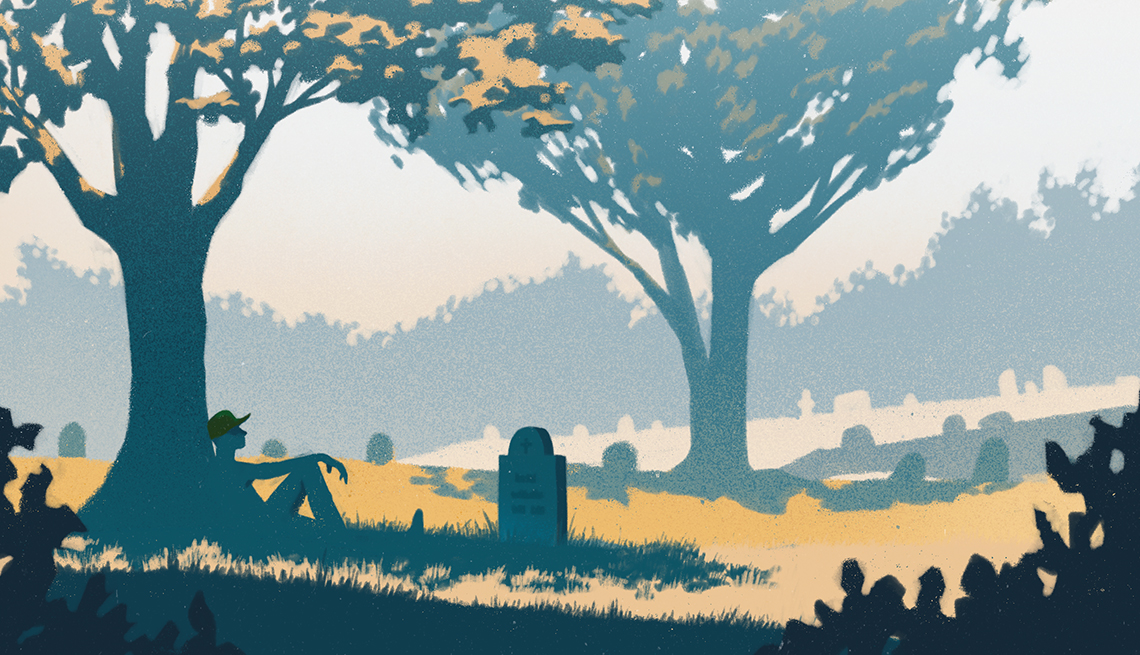
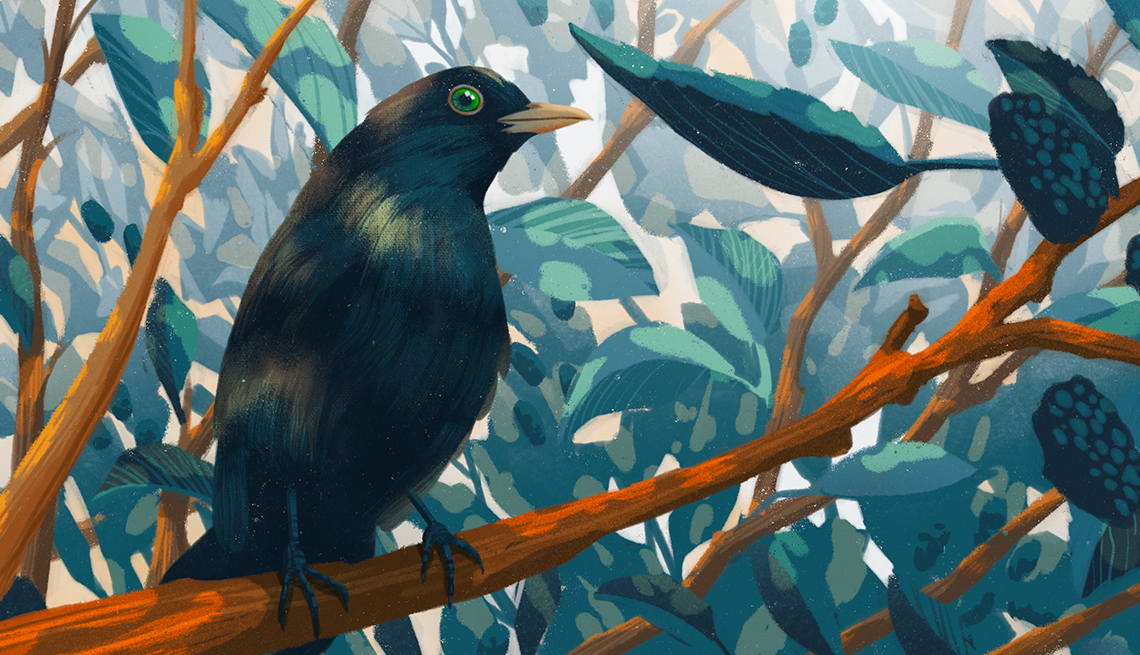
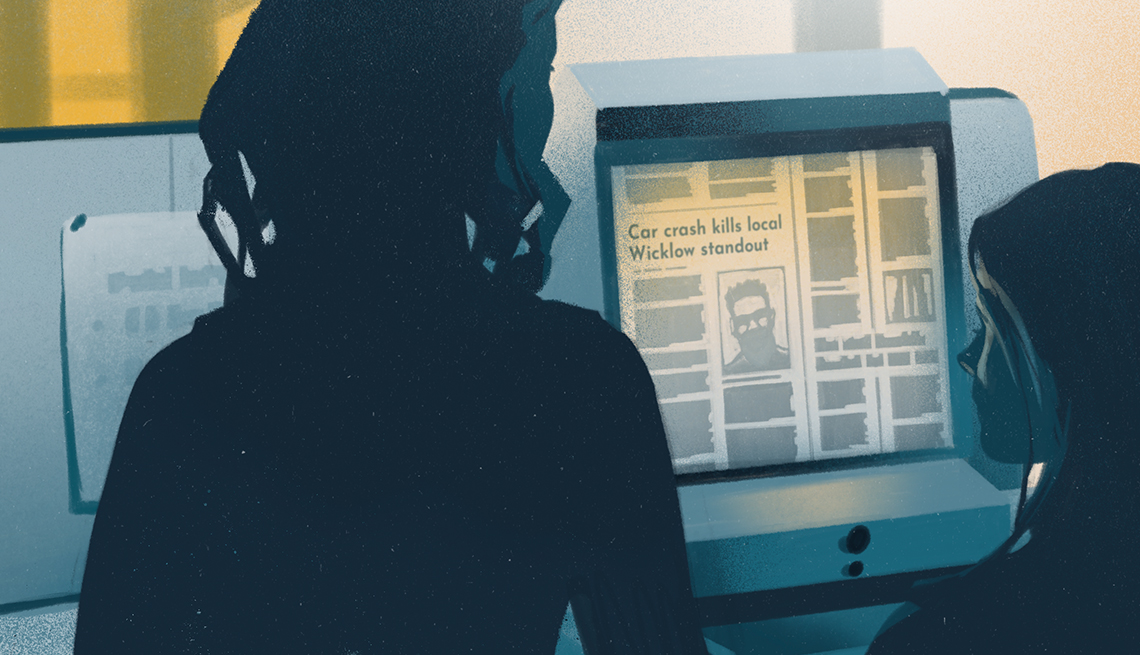
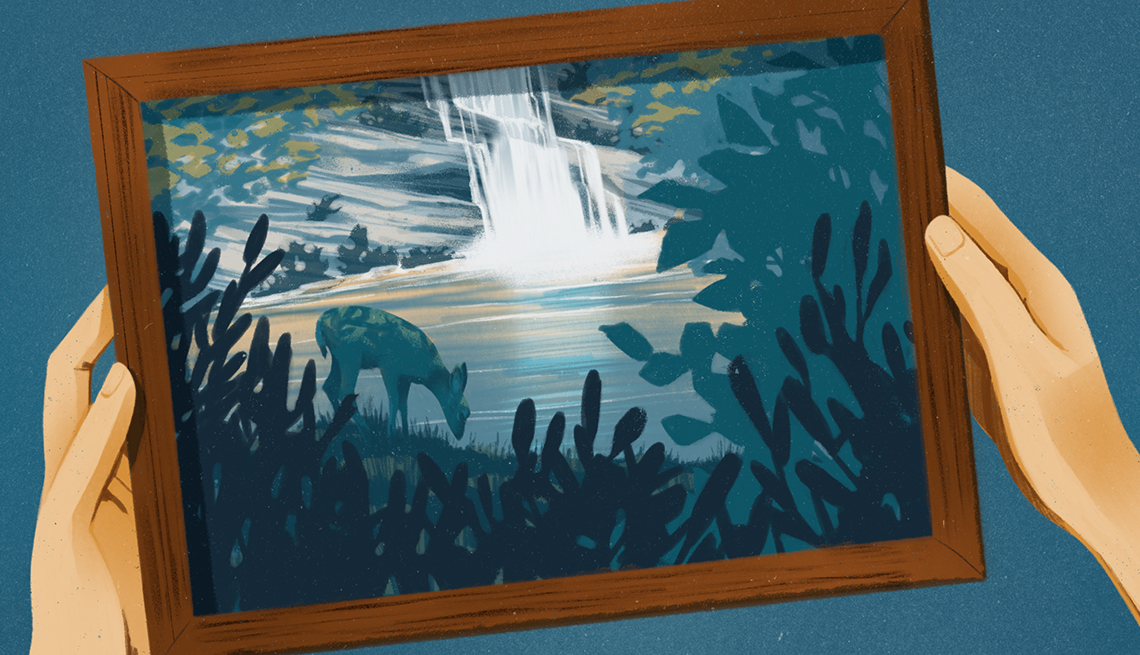
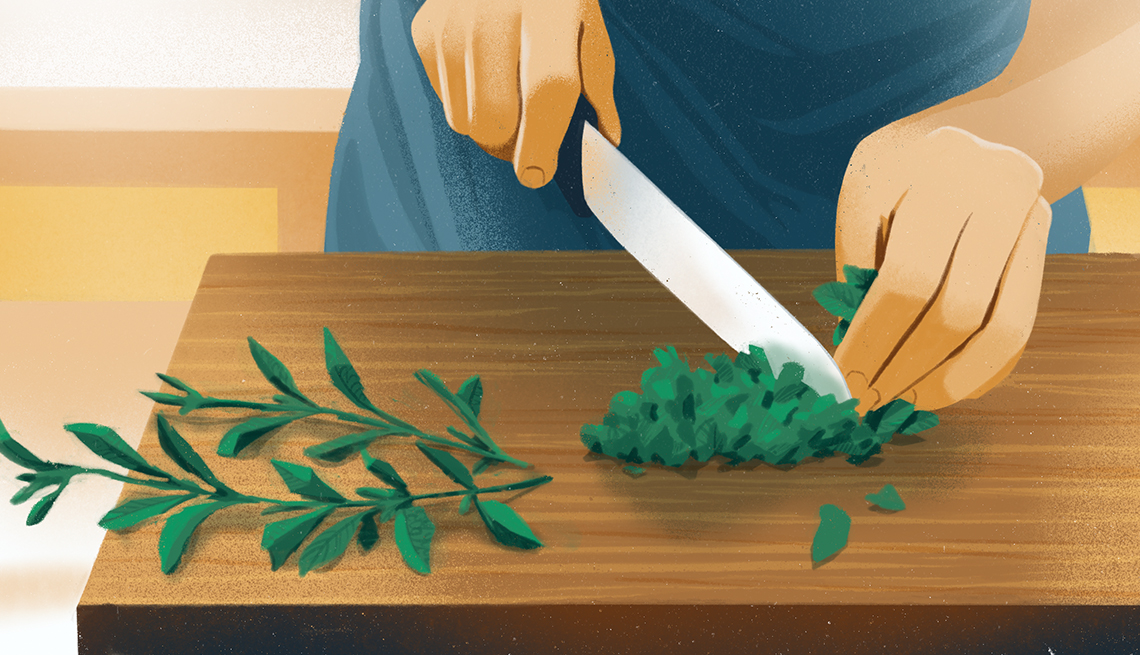
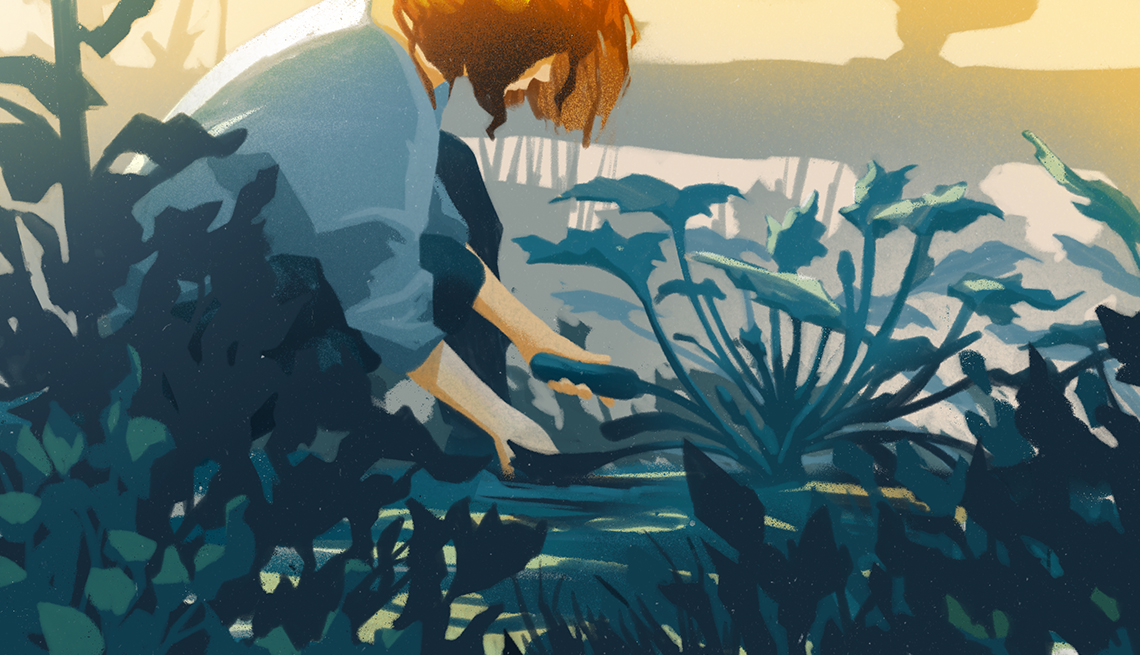
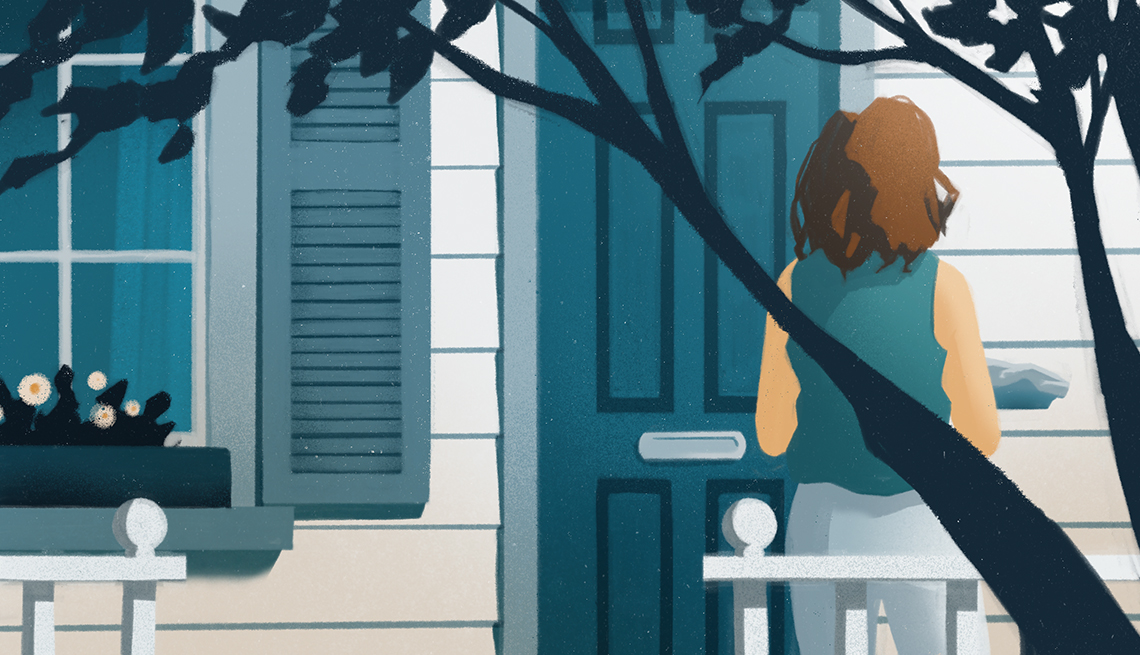
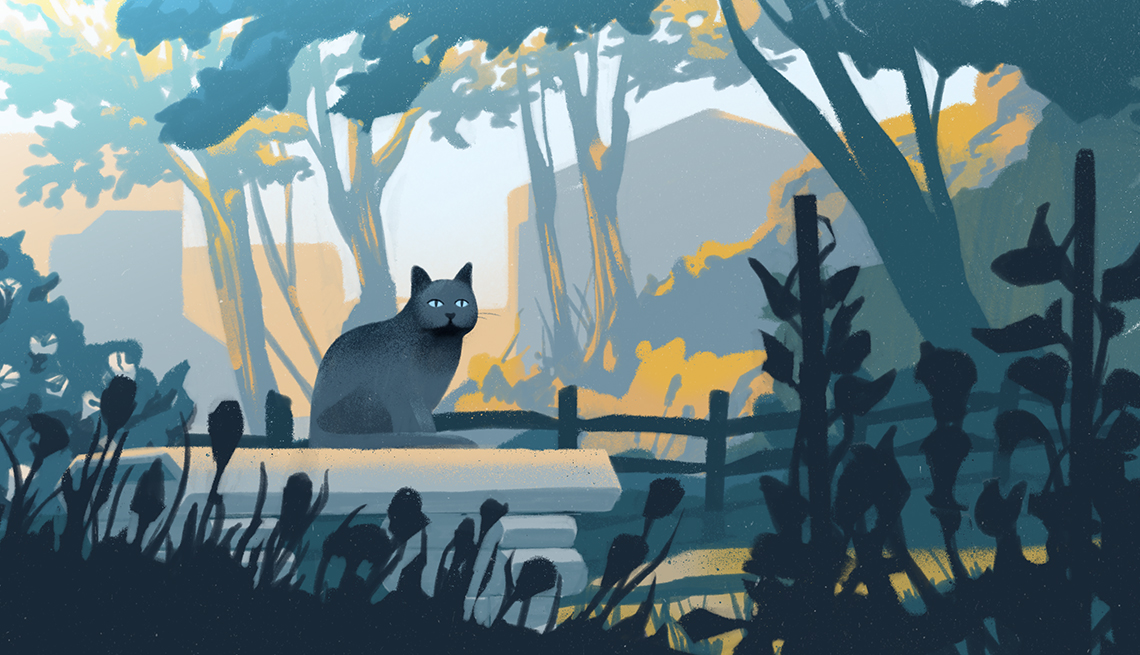

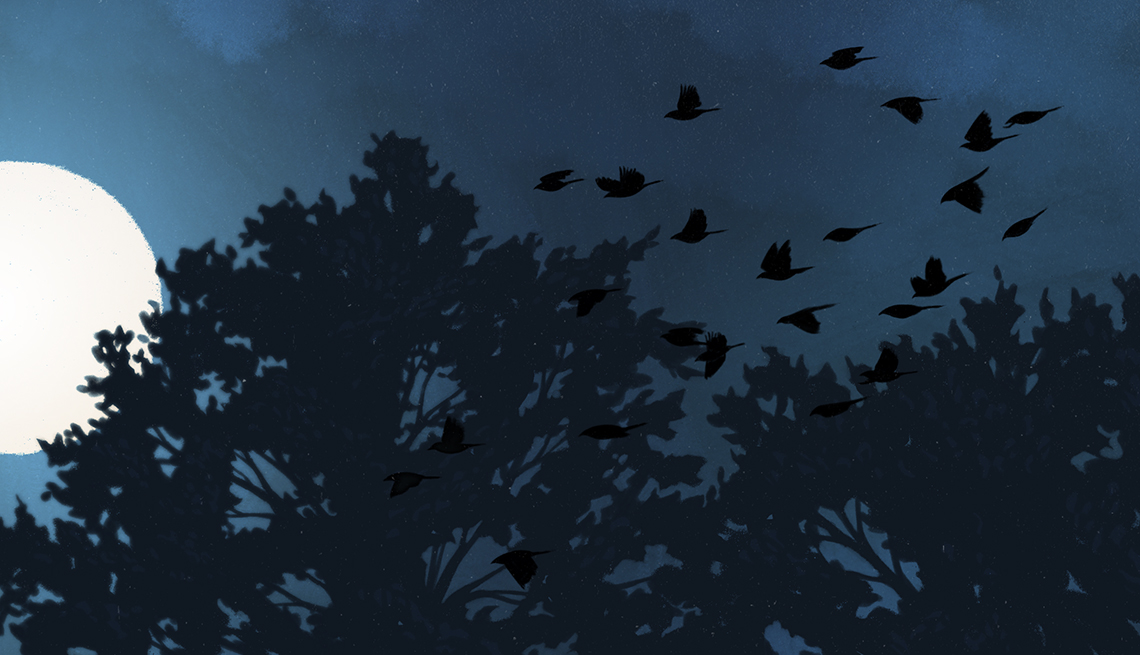
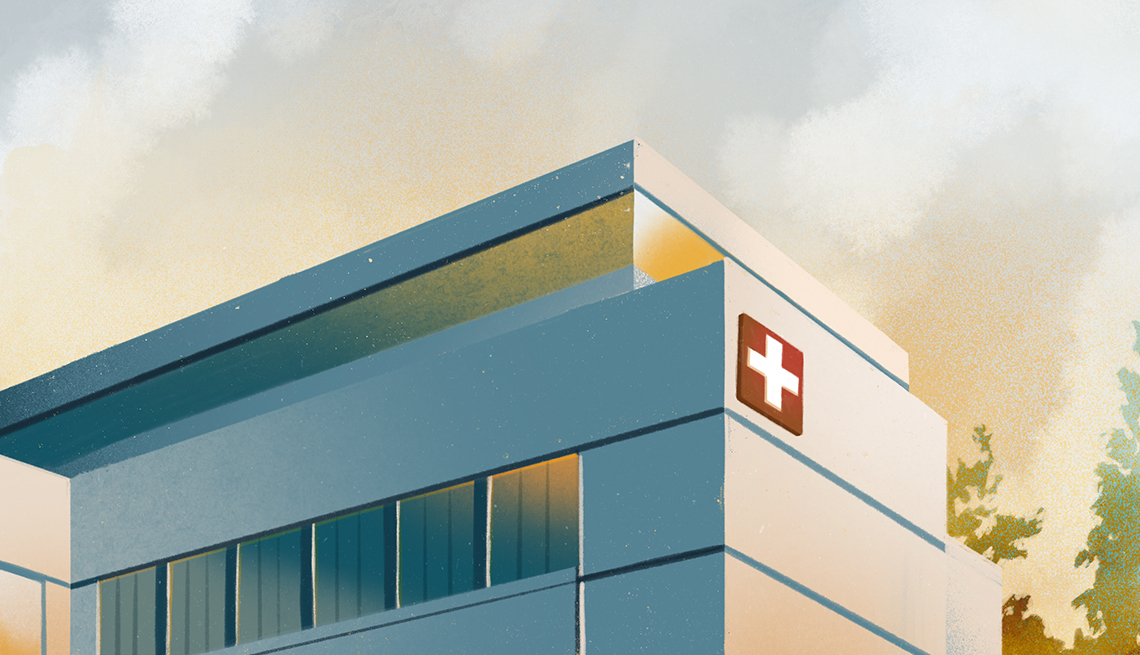
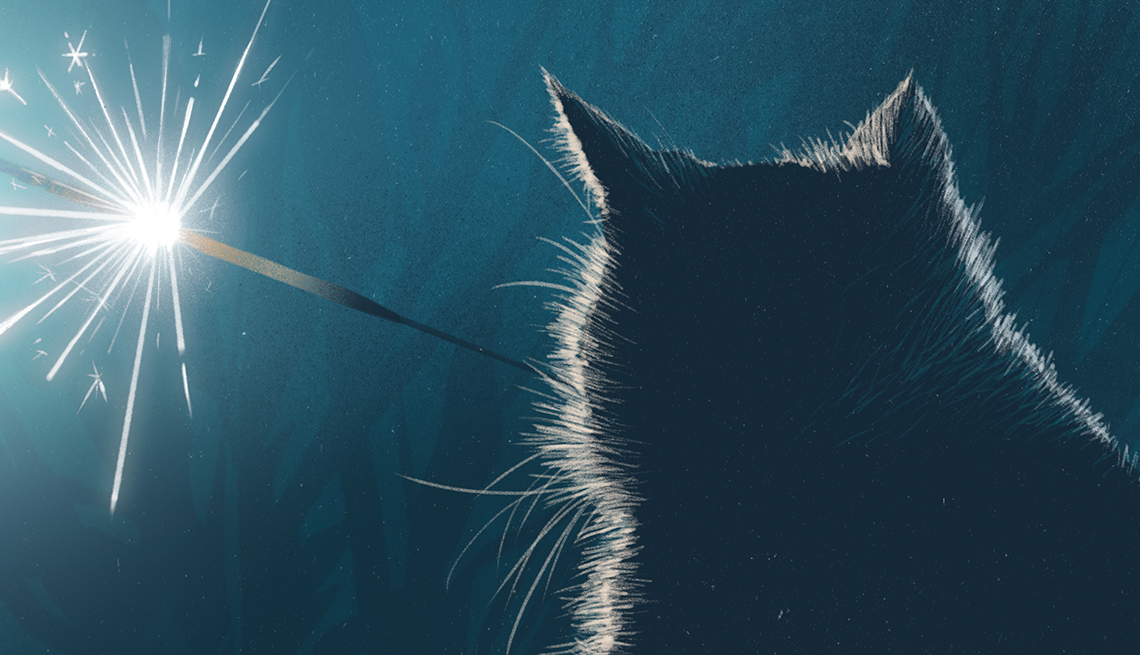
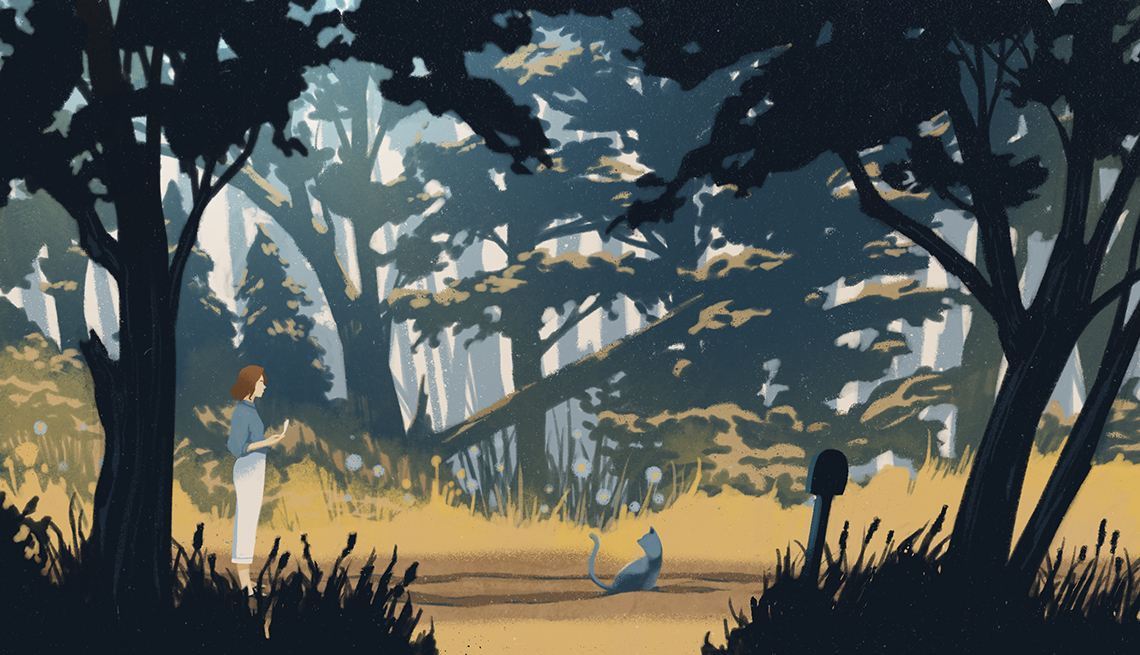
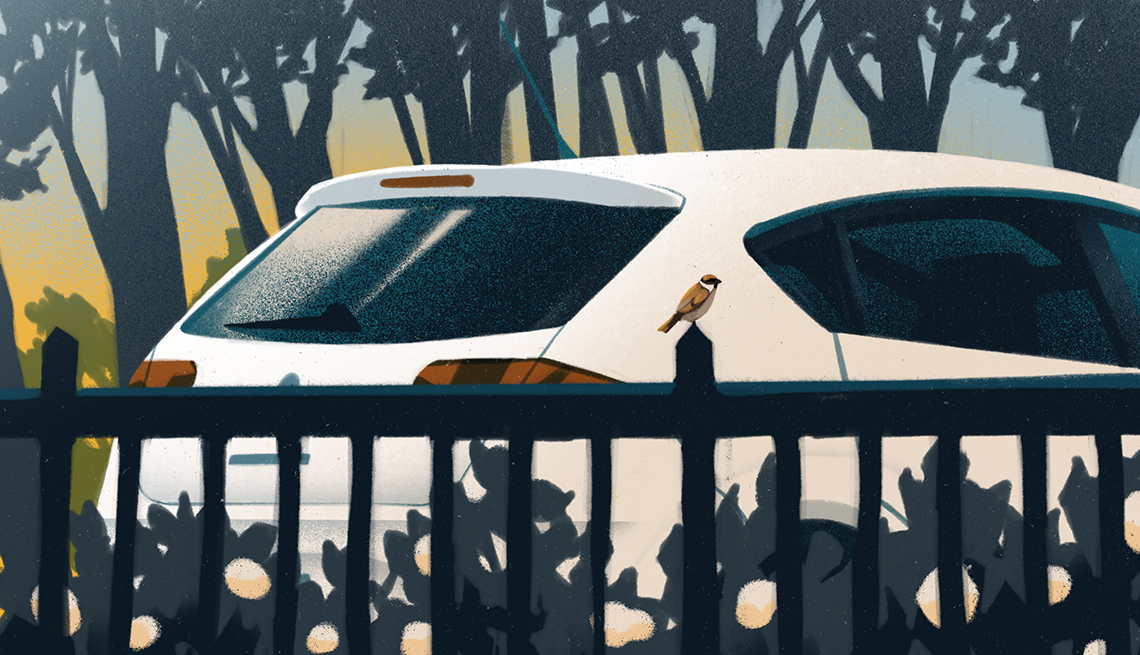


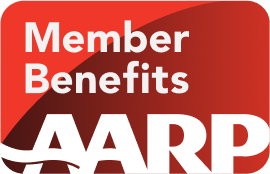




More From AARP
Free Books Online for Your Reading Pleasure
Gripping mysteries and other novels by popular authors available in their entirety for AARP members